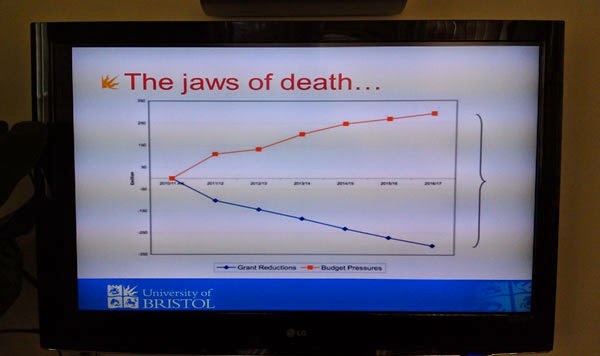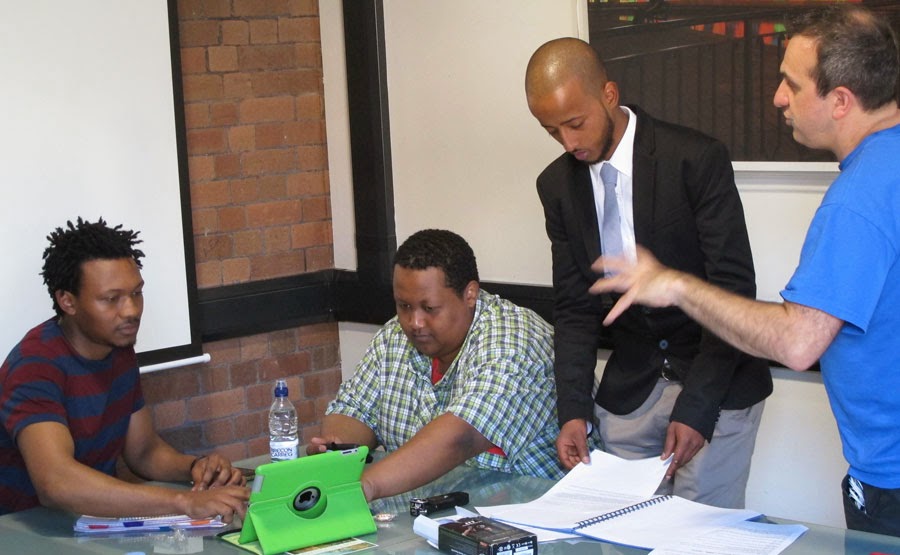Back at Bristol University's School of Social Policy again (see post about the first part of Bristol Mayor Watch project ) with Professor Alex Marsh and Dr David Sweeting to learn about how Bristol is run - the mayor, the council, the councillors.
Pleased to see some homework has been done before the session by our citizen journalist team (they'd been sent links to profiles of Alex and Dave and to their blogs and areas of research - see links below) so there are some good questions about elections, housing and social policy in general - the responses noted and Tweeted to @BSmayorwatch.
Transport is one issue that the academics have focused on for this session as it's such a hot topic in Bristol but perhaps the most revealing information was a graph known as The Jaws of Death, that clearly illustrates the huge cuts in the city's expenditure that the Mayor will have to make in the near future.
Some of the team aren't familiar with the British political system and found it a really interesting session and they'd all learned something new about Bristol's governance - the election process, what councils are and aren't responsible for, the structure of the council - one person felt the information would 'help me to develop myself more'
New insights into the hierarchies of the city were also discovered - one team member felt the amount of power the elected Mayor holds is underestimated by many, and no-one yet knows how much impact the council will have over the decisions he makes. Another of our trainees had come to understand during this session what an important role influence has within the process of implementing policy; who will have the most influence once the new councillors are elected? Well it may take some time for this to become evident but we'll be reporting on the elections from the City Hall later this week with further Tweets and blog posts by the team on the Bristol Mayor Watch blog.
These are links to information on or blogs by our excellent hosts at University of Bristol this evening, Professor Alex Marsh and Dr David Sweeting
http://www.thisisbristol.co.uk/Elected-mayor-role-bring-stability/story-15968038-detail/story.html#axzz2SG4gJpRy










































